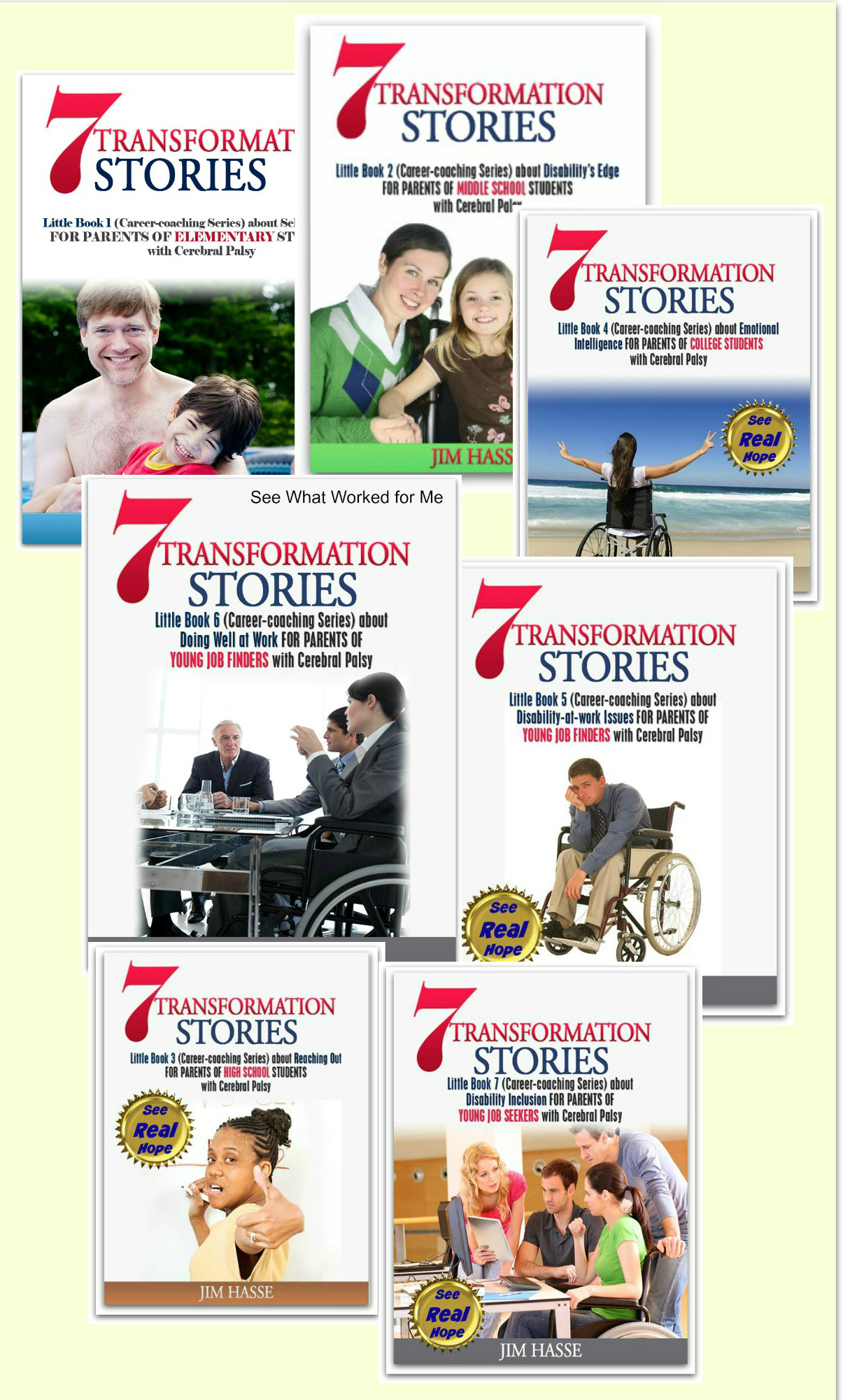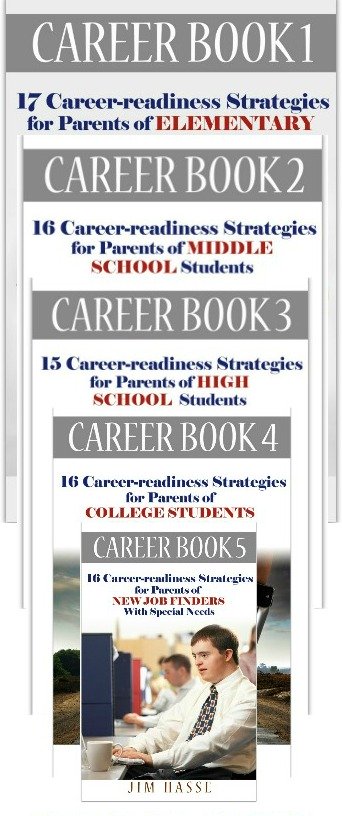How to Find a Job: Cerebral Palsy Career Builder for College Students
By Jim Hasse, ABC, GCDF, Disability Employment Expert
_________________________________________________________
Learning how to find a job will not be easy for your about-to-graduate
college student with cerebral palsy (CP).
It’s a task that calls for helpful tips
from those who have learned, through their own ups and downs, to do it effectively.
So, here are 20 lessons I’ve learned during my 50 years in business about employee recruitment that may make the transition from school to work a little bit smoother for your college student.
I believe launching a career when CP is involved takes a lot of savvy and hard work. Let’s sidestep the “hard work” aspect of your son or daughter’s new venture and focus here, instead, on the “savvy” part.

For me, being savvy about how to find a job when you have CP means:
- Realizing that being treated with dignity
is a universal right of any job seeker, disabled or not.
- Recognizing that going into business
for yourself, which requires experience, is not often a viable alternative
to competing for a job once you’re ready to make the transition from school
to work.
- Knowing the difference between disability-friendly,
inclusive employers and EEOC-driven employers who simply seek to qualify
for state and federal government contracts and knowing how to find a job
within each type of company.
- Admitting employers are not responsible
for “giving you a chance” as a job applicant; learning how to find a job
is your responsibility.
- Learning the difference between prejudice
and bias and how to effectively address each as a job seeker.
- Highlighting your ability to deal effectively
with ambiguity as a personal attribute in your job marketing campaign.
- Selling yourself as a bridge
builder who can help your prospective employer prepare for upcoming shifts
in the employee landscape, where older, sometimes disabled workers become
more prevalent.
- Turning the negative perception of
dependency into an advantage as a job candidate with a disability.
What getting-hired advice
(based on your own experience in today’s job market)
do you offer as a parent to your new graduate
with unexpected challenges?
Join PACER’s Facebook discussion.
- Positioning your personal approach
to vulnerability as a standout attribute during job interviews.
- Using authenticity to put your
prospective hiring manager at ease about your disability.
- Describing your volunteer
experience so it’s meaningful to hiring managers.
- Making sure you’re in the right
line when recruiters visit your college campus.
- Showing hiring managers you’ll
bring an entrepreneurial spirit to their work teams.
- Moving beyond self-absorption
about your disability to a mainstream orientation.
- Reassuring your prospective hiring
manager you know how to avoid being an “easy mark” at work.
- Learning how to gracefully accept
and decline help at work and in public.
- Being clear about your career
ambitions upfront with prospective employers.
- Showing a prospective employer how
your resiliency will contribute to the company’s bottom line.
- Putting job interviewers at ease
about accommodations you may need to be effective at work.
- Knowing your rights under the Americans with Disabilities Act (ADA) – and those of your prospective employer.
So, here’s my message to the college student and soon-to-be job seeker you’re currently mentoring.
“Work smarter at showing a hiring manager at a specific employer why you’re the best candidate for an open job that feels right for you.”
What
getting-hired advice
(based on your own experience in today’s job market)
do you offer as a parent to your new graduate
with unexpected challenges?
Join PACER’s Facebook
discussion.
Return from How to Find a Job to Interview Tips
Go to Cerebral Palsy Career Builders
This is Creative Commons content. You can freely and legally use, share and repurpose it for non-commercial purposes only, provided you attach this sentence and the following attribution to it (including the two links):
Originally written and illustrated by Jim Hasse, ABC, GCDF, owner of Hasse Communication Counseling, LLC, who, as a person with cerebral palsy, served for 10 years as a vice president in a Fortune 500 company during his 29-year career in corporate communication. He’s an Accredited Business Communicator, certified as a Global Career Development Facilitator and author of 14 Amazon books about disability awareness and disability employment issues.





